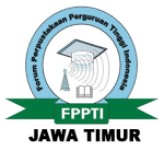Reflection of Librarians in East Java Province on the Phenomenon of the Transformation Program of Social Inclusion Based Library
Unduhan
Background of the study: The reflection of librarians is the efforts of librarians in understanding their actions. Librarian's reflection is one of the effort to evaluating. Also to identifying learning from the actions taken.
Purpose: This study aims to identify the reflection librarians in driving the phenomenon.
Method: This study uses a qualitative interpretive phenomenological approach. The informant is the librarian public libraries was select by purposive sampling.
Findings: The reflection of librarians is learning in doing work. Based on the four stages, librarians can identify new knowledge and abilities. Librarians play an important role in facilitating the information needs of the community. The role of librarians in defining community problems is key. So, the services facilitated by libraries are under the conditions of the community.
Conclusion: The reflection involves librarian awareness actions. Librarians are always direct towards phenomena or also called intentionality. This action then generates new knowledge and skills. Suggestions for librarians is that librarians must get out of the routine of library technical activities. Librarians must have interpersonal skills. Librarian also must have the ability to understand community psychology and organizational dynamics.
Unduhan
Bappenas. (2017). Kebijakan Pembangunan Perpustakaan. Disampaikan oleh Bapak Didik Darmanto pada Kegiatan Peer Learning Meeting Program Perpuseru, Jakarta 2017.
Bappenas. (2018). Kebijakan Transformasi Perpustakaan Berbasis Inklusi Sosial. Disampaikan oleh Bapak Amich Alhumami, PhD pada Lokakarya Sinkronisasi Pengembangan Transformasi Perpustakaan untuk Meningkatkan Kesejahteraan Masyarakat pada tanggal 10 April 2018 di Hotel Anvaya Beach and Resort.
Booth A & Brice A (2004) Evidence Based Practice for Information Professionals: A Handbook. London: Facet Publishing.
Creswell, John W. (2015). Penelitian Kualitatif dan Desain Riset: Memilih di antara Lima Pendekatan. Pustaka Pelajar: Yogyakarta.
Fourie, Ina. (2007). Public Libraries Addressing Social Inclusion: How We May Think. http://www.ifla.org/iv/ifla73/index.htm.
Griffis, M. R., & Johnson, C. A. (2014). Social capital and inclusion in rural public libraries: A qualitative approach. https://doi.org/10.1177/096100061247027.
Hetzner, Kffr. Stefanie Bianca. (2013). Reflection in Professional Practice. Regensburg: Universität Regensburg.
Notoatmodjo, Soekidjo. (2014). Ilmu Perilaku Kesehatan. Jakarta: Rineka Cipta.
Prasetyawan, Yoga Yanuar dan Patut Suharso. (2015). Inklusi Sosial dan Pemberdayaan Masyarakat dalam Pembangunan Perpustakaan Desa. Jurnal ACARYA PUSTAKA Vo. 1, No 1, Juni 2015.
Sanders J. The use of reflection in medical education: AMEE Guide No. 44. Med Teach. 2009;31 (8):685–95.
Siagian, S.P. (2002). Kiat Meningkatkan Produktivitas Kerja. Jakarta: Rineke Cipta.
Smith, Jonathan A; Paul Flowers; and Michael Larkin. (2009). Interpretative Phenomenological Analysis. London: SAGE Publications.
Talavera-Ibarra, Ana Maria; Aurora da la Vega. (2015). Opportunity for all: Threes Social Inclusion Experiences in Peru's Public Libraries. IFLA WLIC 2015.
Tuffour, Isaac. (2017). A Critical Overview of Interpretative Phenomenological Analysis: A Contemporary Qualitative Research Approach. Journal of Healthcare Communications. Vol. 2 No. 4, Juli 2017. DOI: 10.4172/2472-1654.100093.
Hak Cipta (c) 2021 Fidan Safira, Laksmi Laksmi

Artikel ini berlisensiCreative Commons Attribution-ShareAlike 4.0 International License.
Record and Library Journal by Unair is licensed under a Creative Commons Attribution-ShareAlike 4.0 International License.
1. The journal allows the author to hold the copyright of the article without restrictions.
2. The journal allows the author(s) to retain publishing rights without restrictions
3. The legal formal aspect of journal publication accessibility refers to Creative Commons Attribution Share-Alike (CC BY-SA).
4. The Creative Commons Attribution Share-Alike (CC BY-SA) license allows re-distribution and re-use of a licensed work on the conditions that the creator is appropriately credited and that any derivative work is made available under "the same, similar or a compatible license”. Other than the conditions mentioned above, the editorial board is not responsible for copyright violation.


 57201398420
57201398420

























